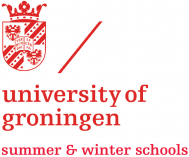10 July 2024
on course website
Developing Across Differences: Addressing Hot Global Issues Locally
Increasingly, global events spark divisive local reactions — even, in some cases, provoking violence — far away from their places of origin. Explore this troubling “spillover effect” phenomenon and, as a powerful alternative to it, learn how to use more considered, critical responses and constructive approaches in both your own work helping others and your everyday interactions.
Why should you attend?
There is growing evidence that major international events, for example those in Palestine/Israel, Ukraine/Russia, do damage not only to those most immediately involved, but also can sow significant discord — and result in unexpected and serious consequences — among those who are far away from the physical centers of activity.
While many of us may feel un(der)prepared to take on global issues, this phenomenon suggests that we ignore them at our peril: What was once happening “over there” is now also a reality to be contended with “right here” and often “right now” — even if the topic seems unrelated to our areas of responsibility.
To help you better navigate global issues that become local hot-button items, this course
- Examines this occurrence and the disruptive impacts (e.g. name-calling, cancelation/shame campaigns, physical confrontations, etc.) that it can have on local realities and
- Explores effective alternative strategies that multipliers can use to prevent, diffuse and/or counteract this trend in workplaces, classrooms, trainings and community spaces.
Course leader
Dr. Maja Nenadović
Target group
This course is for you if you are an HR specialist/diversity officer/consultant/trainer/multiplier/educator who helps those who:
● Find global issues are increasingly raised in local discussions and debates
● May be more comfortable ignoring rather than addressing these issues — but find this is no longer a viable option
● Seeks strategies that allow for authentic engagement about complex issues for which there are many, often differing perspectives and no clear-cut answers
While topics will be approached sensitively and with warnings provided, this course will necessarily not shy away from addressing current complex global affairs, differing perspectives around them, and some of the troubling consequences that these can result in far away from the center of action.
Level requirements
The DAD is for multipliers who help individuals, organizations and societies better recognize, appreciate and use differences as a way of better communicating, working and thriving together.
These are (in-house and external) trainers, educators, consultants, coaches, researchers, scholars, facilitators, HR staff, advanced-level (MA+) students, and professional development specialists with 5+ years of experience/study in the greater Differences field. Contact the organisers at ic@rug.nl or info@iddifferences.org for consultation about appropriateness and eligibility.
It is expected that the participants have a sufficient command of the English language to actively participate in the discussions and to present their own work in English.
Course aim
In this course, you will learn how to help yourself and those you work with so that you/they can better:
● Define what roles you/they might take in navigating global issues locally.
● Be more mindful and critical in (social) media consumption/contributions, workplace discussions, and other everyday behavior related to global events.
● Implement appropriate strategies that move away from disruptive tactics and impacts (e.g. name-calling, cancelation/shame campaigns, etc.) towards more considered, constructive dialogues and outcomes.
Credits info
Workload
6 hours of in-class learning and active participation using experiential methods.
Upon successful completion of the programme, the Summer School offers a Certificate of Attendance that mentions the workload of 6 hours (28 hours corresponds to 1 ECTS). Students can apply for recognition of these credits to the relevant authorities in their home institutions, therefore the final decision on awarding credits is at the discretion of their home institutions. We will be happy to provide any necessary information that might be requested in addition to the certificate of attendance.
Fee info
EUR 560: includes course and materials, optional evening programming
Register for this courseon course website

